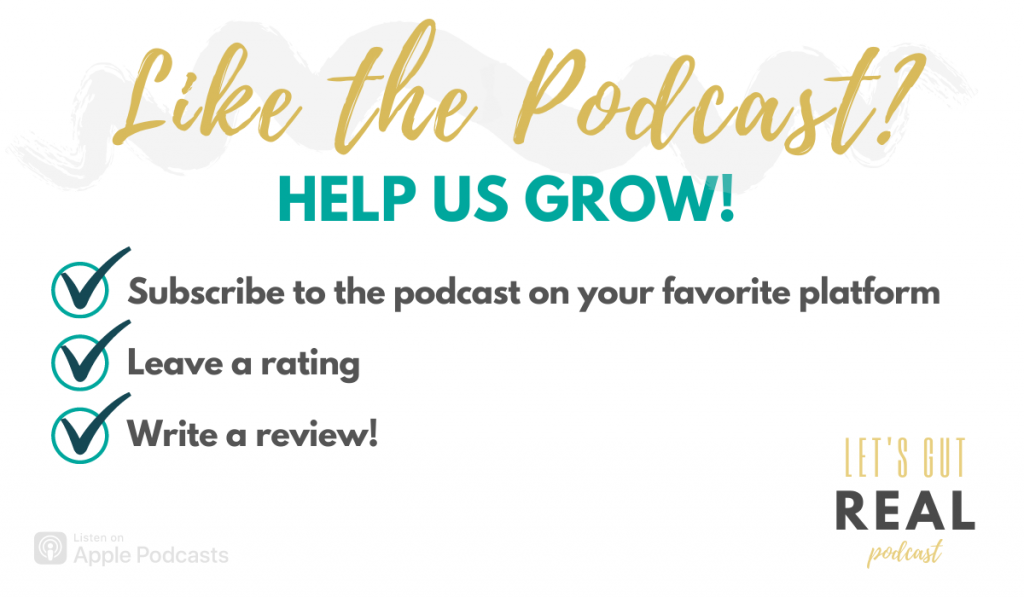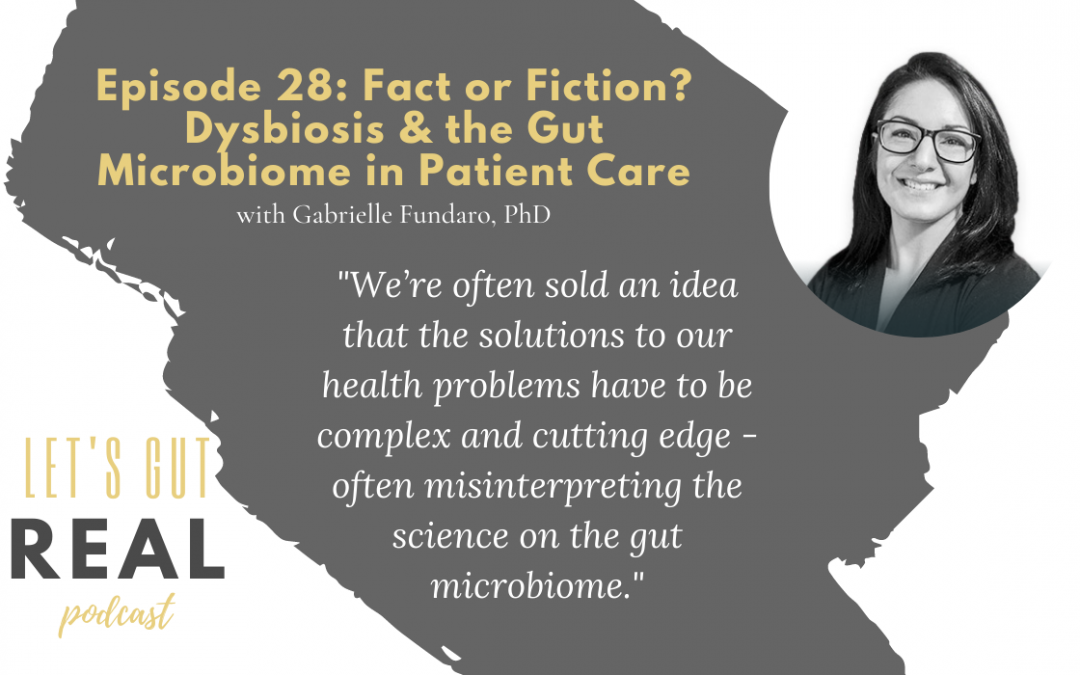We’re often sold an idea that the solutions to our health problems have to be complex and cutting edge – often misinterpreting the science on the gut microbiome. How does this fit in patient care?
Nutrition Pearls for Dysbiosis
- We don’t have a definition of dysbiosis or gut health yet
- There are no tests or treatments that are validated for dysbiosis – at this point, we can’t say whether the gut microbiota changes seen with disease are causative, and if manipulating that improves patient outcomes (except in certain new drug-based probiotic trials)
- As practitioners, we see people gravitate towards ‘cutting edge’ answers to their diagnoses. We need to listen to their stories and validate their experiences – not just explain the science
Red flags when reading about the gut microbiota in the media
- Anything that implies the gut microbiome is causative (ie causing one symptom or disease)
Green flags when reading about the gut microbiota in the media
- ‘it depends’, and ‘the research suggests’ are great things to look out for
Gabrielle Fundaro holds a PhD in Human Nutrition, Foods, and Exercise from Virginia Tech as well as a BS in Exercise, Sport, and Health Education from Radford University. She is an ACE-certified Health Coach with both Monash Low-FODMAP and ISSN Sport Nutritionist certifications and provides client-centered coaching and consulting telehealth services via Vitamin PhD Nutrition that focus both on gastrointestinal disorders and health behavior change. In her free time, she enjoys hiking, reading, spending time with my dogs, and lifting weights.
In this episode, Gabrielle and I chat about:
- Her research with the gut microbiome and lipopolysaccharides (LPS)
- How do we define gut health?
- Dysbiosis – what is it? Is there a diagnostic test? The problems with this?
- Why do you see patients gravitate towards gut microbiota tests and other gut health tests that aren’t validated?
- How do we find the balance between discussing science and connecting with patients?
- Can the results of 1 study to provide health interventions?
- Red flags & green flags to watch out for when reading about the gut microbiome on the internet
- How health care providers need to do a better job at communicating and connecting with their patients -and how to do that!
To learn more from Gabrielle, follow her on Instagram @vitaminphd or visit her website at www.vitaminphdnutrition.com



Recent Comments